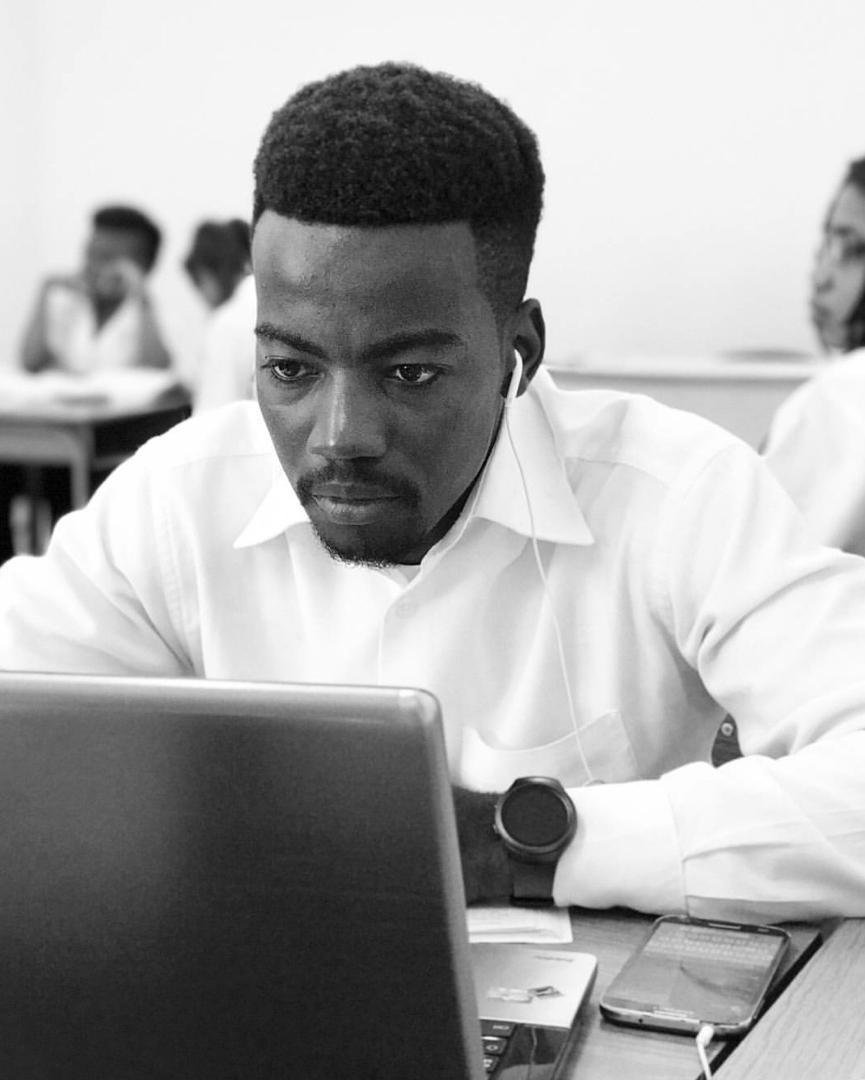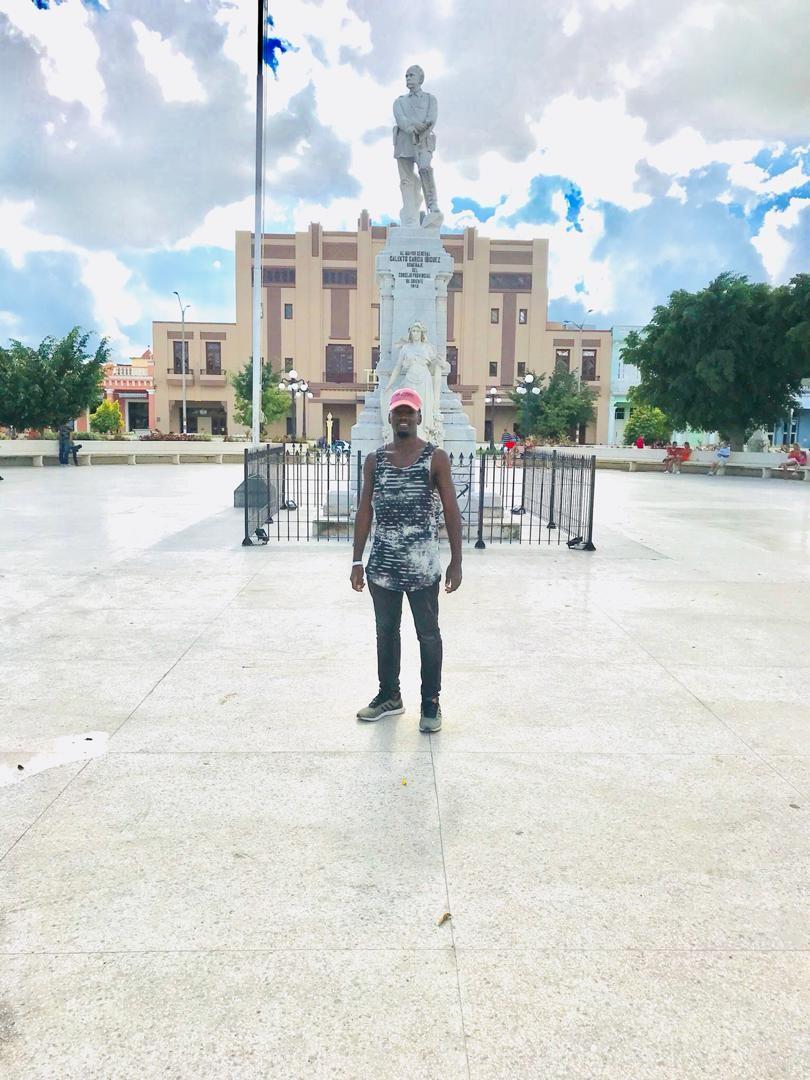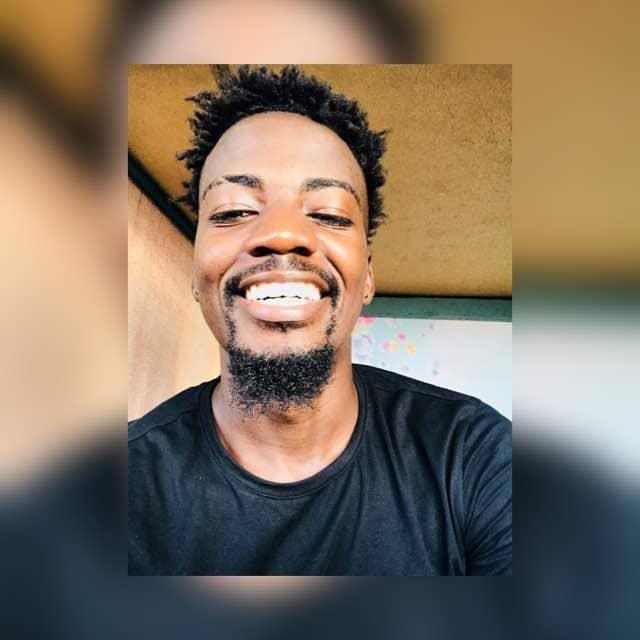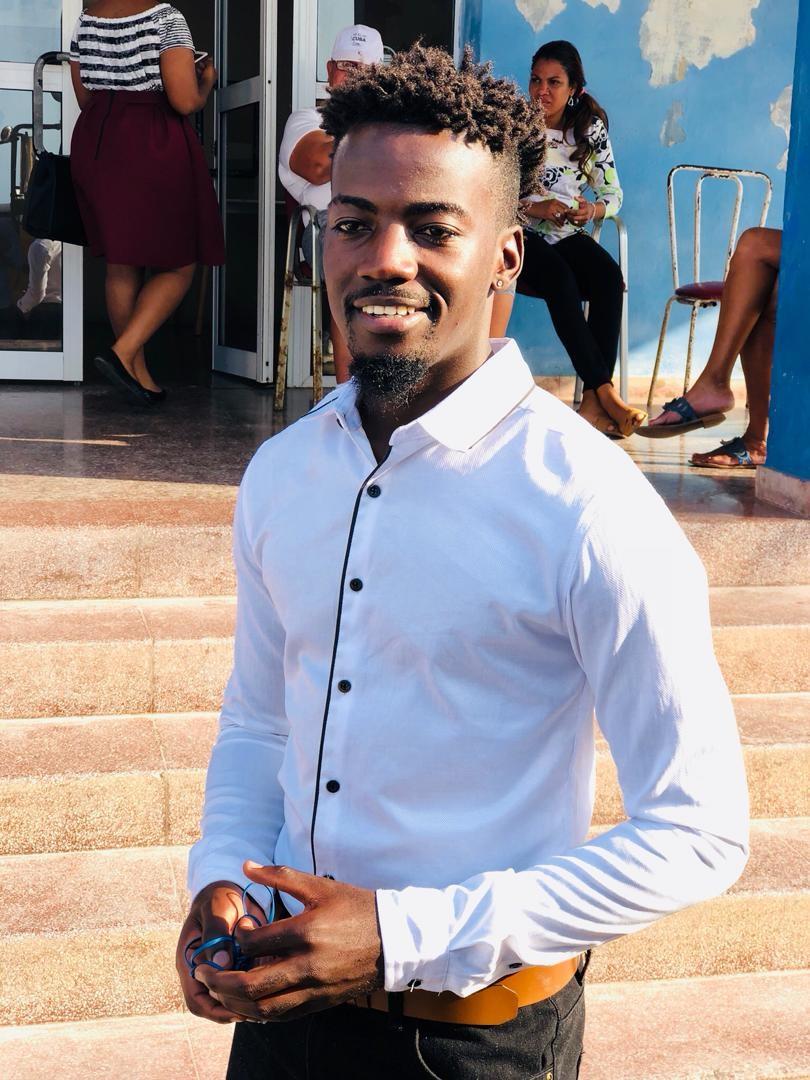Years of lessons and sunshine
Vekunda Kakujaha shares his varsity experience at the Escuela Latino de Medicina in Havana, Cuba.
Vekunda Kakujaha
The date is 1 September 2016. As the plane comes to a stop on the tarmac and the rest of my fellow passengers applaud the pilot, the reality of my situation slowly creeps in. This Ovaherero boy from Arminius is far from home.
The first thing I notice is how relatively old the plane is and then I calm down as I see the excitement and uncertainty of my fellow companions. On this specific plane there is about 40 of us and we will be around 200 Namibian students in total, 150 doing medicine and around 50 doing dentistry.
We are all here thanks to scholarship bursaries from the ministry of health.
There’s is light rain outside and we are all taking pictures, as the scenery through the plane window looks quite beautiful, and I remember my mother telling me how much it rains in countries like Cuba. Having grown up as farm boy, with a fear of drought and a love for the rain, I look forward to all the rainy days.
As soon as I step off the plane I feel like I am hit with a cushion of humid air. I immediately get back into the air-conditioned plane and realise that am literally stepping into a totally different world.
For those that don’t know Cuba, it has a Caribbean subtropical climate, with rainy hot and humid weather in summer.
Thanks to my grade 10 geography teacher I can tell you that the air feels warm and wet compared to Namibia’s hot and dry weather.
As a point of reference, just think of how the steam from boiling water feels when you are making pap; come to think of it, I haven’t had pap and omaere for almost three years now.
Back to Cuba. During our ride from the airport to the campus where we will be doing our pre-medicine and Spanish courses, we marvel at how different everything is from back home, even the way the neighborhoods are setup. It looks like a scene from those 80s or 90s movie.
Over the course of six months we are taught Spanish as our entire medicine course is done in this language. On a weekly basis they take us to visit the different important sites, museums and markets.
The medicine curriculum we are doing is divided among different campuses that cater to specific levels. We did Spanish for six months and then pre-med for another six months on a campus in Cojimar, Havana; then we moved to the Escuela Latino Americano de Medicina, where we did our first and second years. We will then be allocated to different hospitals (all based in Havana) where we will complete the course from the third year onwards.
Before I go on let me quickly explain a few things about Cuba.
First and foremost, without going into the finer details of it, Cuba is a socialist country which basically translates to the government owning and running everything from top to bottom.
The production and assimilation of goods is need-based and not profit-based. One of the earliest rules we picked up within our conversations with Cubans is that as a foreigner, stay away from anything and everything to do with Cuban politics. Also Cubans have a very high sense of respect for their historical figures and we were taught about the effects that the United States embargos have on the Cuba as a nation.
Even though geographically we are right above the US and close to European markets, because of the embargos imposed by the US on Cuba, everyday services and products that we take for granted back home are way more expensive and scarce.
For example, if someone goes to town and finds a certain face wash in a specific shop, and you go the next day to that exact same shop, there’s a high probability you won’t find it and they will tell you they have no idea when they will have it again; and that applies to anything and everything. This is unlike in Namibia, where you know exactly in which shop to go to find which product.
So it was a bit of a struggle to learn to use whatever is available and most of the time there’s not a choice in terms of brand, unlike at home where we have an abundance of everything, as long as you can afford it.
Another huge adjustment was internet access, which is relatively a new thing here in Cuba and is quite expensive. In 2014 you paid US$10 for a Wi-Fi card that gives you access to the internet for one hour at specific Wi-Fi spots in town.
By the time we got here it was US$2 for a one-hour Wi-Fi card, but the Wi-Fi locations had increased. Last year in September they finally made mobile data available, which is still extremely expensive but at least more convenient. We also had to adjust our consumption of media and the latest music, videos and movies are not as quickly accessible as they are back home, but through the resourcefulness of the Cubans we still get the latest of everything, probably just a few days to weeks later than the rest of the world.
Another glaring difference is the extremely low crime rate. Petty crimes rarely occur, to the point where it sometimes makes me feel like being here has made me a little bit “soft” or less cautious. When crime does occur it is handled very swiftly and you never hear about it.
As we are at the same university and share classes with students from the Caribbean and the Pacific Islands, a number of fellow African countries, Middle Eastern countries (Arabs), Asian countries and Latin American countries, it is expected from us to respect the customs of our fellow students and it also gives us an opportunity to learn and share ideas with people who come from places with world views that are totally different from our own.
This exposure, I feel, is one of the most important aspects of studying abroad, even though you’re far away from home, your friends and family and it sometimes feels like life back home is going on without you. The flipside is that you should never forget home, your family values and why you are here in the first place.
Another piece of advice I would give aspiring young students, wherever they are in the world, is that as much as you should always remember what your main objective is (obtaining that education), it’s also just as important to get to know yourself and find the things that excite you, because that will eventually help define who you are.
Medicine can be quite a taxing course and you need to find your own hobbies that will help you relax and feel whole as a human. For me that has become poetry and learning about the transformational power of entrepreneurship. Recently we have been brainstorming about starting a bunch of podcasts.
Being far away from home, but still feeling the effects of decisions made at home and by world entities, you learn to become critical and analytical about what is going on in the world and how all these different concepts affect and can be applied to your corner of the world, in our case Namibia.
The date is 1 September 2016. As the plane comes to a stop on the tarmac and the rest of my fellow passengers applaud the pilot, the reality of my situation slowly creeps in. This Ovaherero boy from Arminius is far from home.
The first thing I notice is how relatively old the plane is and then I calm down as I see the excitement and uncertainty of my fellow companions. On this specific plane there is about 40 of us and we will be around 200 Namibian students in total, 150 doing medicine and around 50 doing dentistry.
We are all here thanks to scholarship bursaries from the ministry of health.
There’s is light rain outside and we are all taking pictures, as the scenery through the plane window looks quite beautiful, and I remember my mother telling me how much it rains in countries like Cuba. Having grown up as farm boy, with a fear of drought and a love for the rain, I look forward to all the rainy days.
As soon as I step off the plane I feel like I am hit with a cushion of humid air. I immediately get back into the air-conditioned plane and realise that am literally stepping into a totally different world.
For those that don’t know Cuba, it has a Caribbean subtropical climate, with rainy hot and humid weather in summer.
Thanks to my grade 10 geography teacher I can tell you that the air feels warm and wet compared to Namibia’s hot and dry weather.
As a point of reference, just think of how the steam from boiling water feels when you are making pap; come to think of it, I haven’t had pap and omaere for almost three years now.
Back to Cuba. During our ride from the airport to the campus where we will be doing our pre-medicine and Spanish courses, we marvel at how different everything is from back home, even the way the neighborhoods are setup. It looks like a scene from those 80s or 90s movie.
Over the course of six months we are taught Spanish as our entire medicine course is done in this language. On a weekly basis they take us to visit the different important sites, museums and markets.
The medicine curriculum we are doing is divided among different campuses that cater to specific levels. We did Spanish for six months and then pre-med for another six months on a campus in Cojimar, Havana; then we moved to the Escuela Latino Americano de Medicina, where we did our first and second years. We will then be allocated to different hospitals (all based in Havana) where we will complete the course from the third year onwards.
Before I go on let me quickly explain a few things about Cuba.
First and foremost, without going into the finer details of it, Cuba is a socialist country which basically translates to the government owning and running everything from top to bottom.
The production and assimilation of goods is need-based and not profit-based. One of the earliest rules we picked up within our conversations with Cubans is that as a foreigner, stay away from anything and everything to do with Cuban politics. Also Cubans have a very high sense of respect for their historical figures and we were taught about the effects that the United States embargos have on the Cuba as a nation.
Even though geographically we are right above the US and close to European markets, because of the embargos imposed by the US on Cuba, everyday services and products that we take for granted back home are way more expensive and scarce.
For example, if someone goes to town and finds a certain face wash in a specific shop, and you go the next day to that exact same shop, there’s a high probability you won’t find it and they will tell you they have no idea when they will have it again; and that applies to anything and everything. This is unlike in Namibia, where you know exactly in which shop to go to find which product.
So it was a bit of a struggle to learn to use whatever is available and most of the time there’s not a choice in terms of brand, unlike at home where we have an abundance of everything, as long as you can afford it.
Another huge adjustment was internet access, which is relatively a new thing here in Cuba and is quite expensive. In 2014 you paid US$10 for a Wi-Fi card that gives you access to the internet for one hour at specific Wi-Fi spots in town.
By the time we got here it was US$2 for a one-hour Wi-Fi card, but the Wi-Fi locations had increased. Last year in September they finally made mobile data available, which is still extremely expensive but at least more convenient. We also had to adjust our consumption of media and the latest music, videos and movies are not as quickly accessible as they are back home, but through the resourcefulness of the Cubans we still get the latest of everything, probably just a few days to weeks later than the rest of the world.
Another glaring difference is the extremely low crime rate. Petty crimes rarely occur, to the point where it sometimes makes me feel like being here has made me a little bit “soft” or less cautious. When crime does occur it is handled very swiftly and you never hear about it.
As we are at the same university and share classes with students from the Caribbean and the Pacific Islands, a number of fellow African countries, Middle Eastern countries (Arabs), Asian countries and Latin American countries, it is expected from us to respect the customs of our fellow students and it also gives us an opportunity to learn and share ideas with people who come from places with world views that are totally different from our own.
This exposure, I feel, is one of the most important aspects of studying abroad, even though you’re far away from home, your friends and family and it sometimes feels like life back home is going on without you. The flipside is that you should never forget home, your family values and why you are here in the first place.
Another piece of advice I would give aspiring young students, wherever they are in the world, is that as much as you should always remember what your main objective is (obtaining that education), it’s also just as important to get to know yourself and find the things that excite you, because that will eventually help define who you are.
Medicine can be quite a taxing course and you need to find your own hobbies that will help you relax and feel whole as a human. For me that has become poetry and learning about the transformational power of entrepreneurship. Recently we have been brainstorming about starting a bunch of podcasts.
Being far away from home, but still feeling the effects of decisions made at home and by world entities, you learn to become critical and analytical about what is going on in the world and how all these different concepts affect and can be applied to your corner of the world, in our case Namibia.







Kommentaar
Republikein
Geen kommentaar is op hierdie artikel gelaat nie